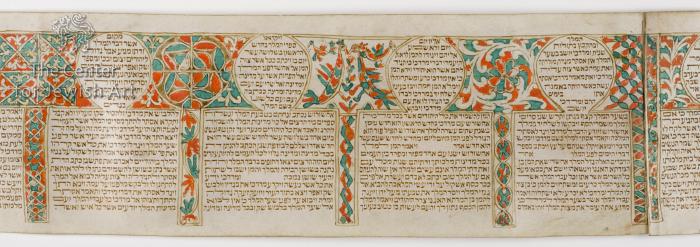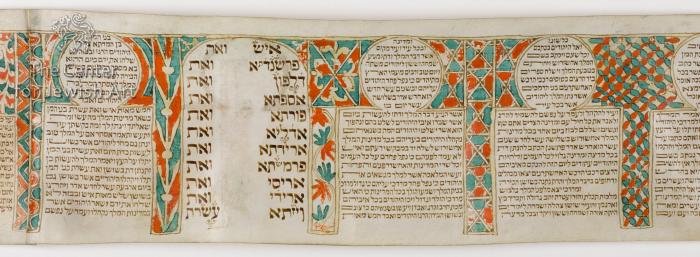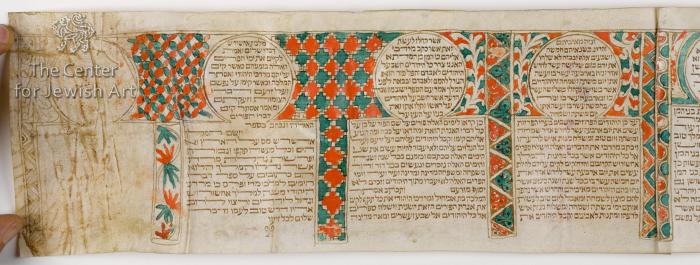Obj. ID: 39607 GFC Esther Scroll with Ornamented Horseshoe Arches, Essaouira, ca. 1875

The final section of the manuscript is crumpled, but - in general - the scroll is well preserved.
The Hebrew text of the Book of Esther is written within the architectonic frame composed of a row of horseshoe arches that are almost closed circles. Every space between the text panels is filled with a unique decoration formed of floral or geometric motifs; exceptionally between the seventh and the eighth panels are painted birds. The only illustration - Haman hanged (Es. 7:10) - was incorporated in the twentieth column but at present it is invisible. All decorations in the scroll are painted in two colors. Its opening and final sections are blank.
The Book of Esther in Hebrew
The scroll is formed of 4 sheets, containing in total 24 columns of text of 22 or 23 lines each, except for col. 20 which includes 11 lines divided into two half-columns.
The lines of the text fit the shape of the panels, therefore they are of different lengths.
The number of the text columns per membrane: no. 1 - 5 columns, nos. 2 and 3 - 8 columns, no. 4 - 3 columns.
The text is written in Hebrew square Oriental script in brown ink on the parchment membranes that are very bright.
The letter ח (Es. 1:6) is formed of two parts joined with a roof and decorated with two tiny strokes. The letter ת (Es. 9:29) is not highlighted. Enlarged and diminished letters are included in col. 20.
There are several decorated letters in col. 20 and the letter ע in the final word of the scroll.
The ruling is made with a hard point; only horizontal lines can be noticed.
The pricking is invisible.
The membranes in the scroll are stitched together.
None
The color scheme featuring this scroll is typical for many decorated megillot from Morocco.
The decorations were sketched with the same ink as the text of the Book of Esther was written.
No bibliography on the scroll is available.








